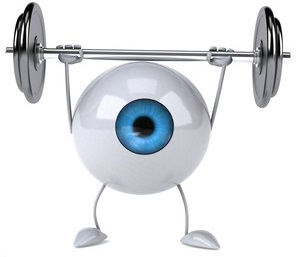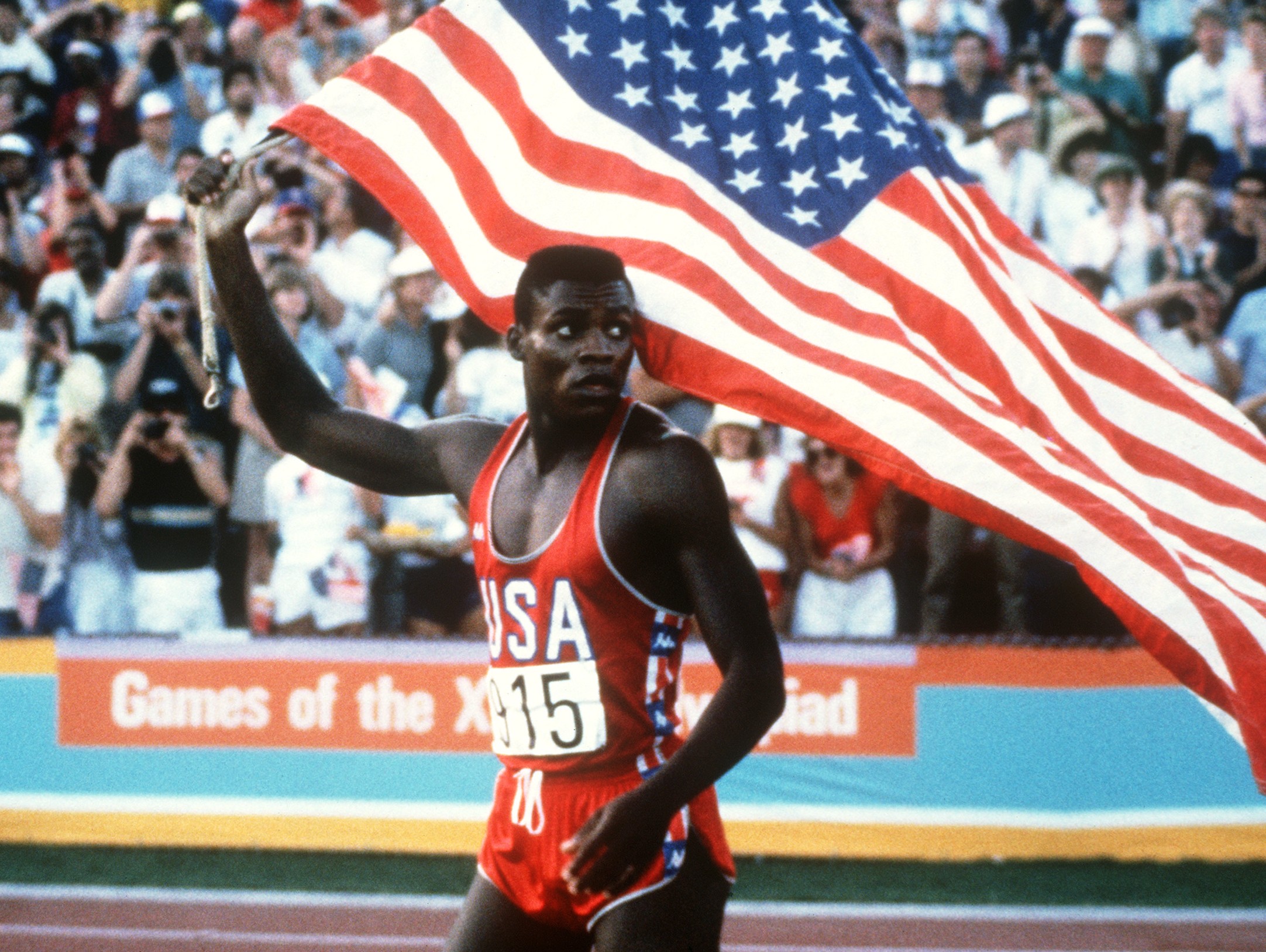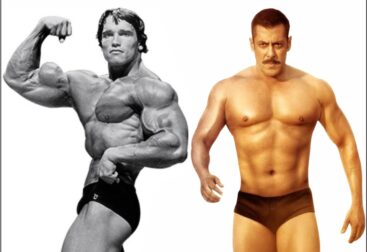Just like a child’s ability to learn in the classroom relies on more than the ability to see a perfect 20/20, an athlete’s performance in their chosen sport depends on many more visual skills than simply having clear vision. 20/20 vision is the standard reference for very good visual acuity, whereby the individual can see clearly at 20 feet what “normally” should be seen at 20 feet. The objective of your eye physician is to improve your vision in each eye to 20/20 whenever possible. High levels of visual processing and integration contribute to an athlete’s coordination, reaction time, and ability to make visually-based decisions. A wide range of visual skills contribute to being a successful athlete, and vision therapy can help develop and fine-tune these skills.
Efficient visual input is a major component of athletic performance. While accurate visual function may begin with good acuity, or the ability to see 20/20 or better, it goes far beyond clarity. Particularly for sports-related activities, a large emphasis is placed on eye tracking and teaming, binocular vision and depth perception, peripheral visual attention, and visual-motor integration. All these skills have the ability to improve sports performance by allowing the eyes to accurately follow objects such as balls or opponents, increasing the athlete’s awareness of themselves and others in space, improving decision-making speed, and refining motor integration and reaction accuracy.
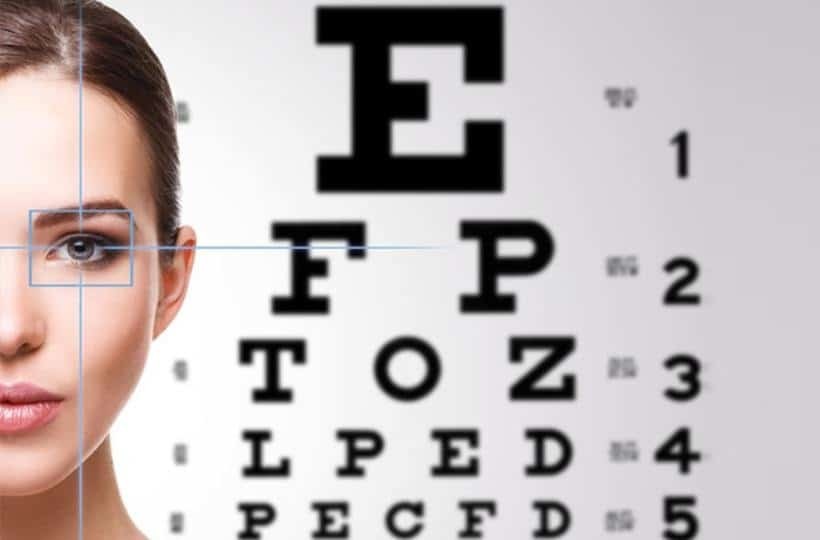
Sports vision testing helps athletes determine how well their eyes perform. These tests go beyond standard eye tests that only evaluate the ability to see letters and objects clearly on a standard eye chart. Sports vision testing takes eyesight evaluation one step further, which is vital to overall athletic training as well as specifically enhancing visual function. While sports vision testing can vary greatly depending on an athlete’s specific needs, in general, sports vision testing can be beneficial for assessing athletic abilities associated with hand-eye coordination, eye tracking, and depth perception.
According to research, more than 80% of knowledge derives from the visual system. That percentage is even greater in relation to sports. This is due to the fact that your eyes direct body movement. Research from vision screenings of Olympic and junior Olympic athletes showed that the athletes who won medals had superior visual systems. Take a look at these statistics from the study.
- 12% of Olympians had unreliable eye movement.
- 25% of Olympians had deteriorated depth perception.
- 26% of those in the study had poor eye-hand coordination based on the demand of the sports they are involved with.
- 30% of athletes assessed were found to have less than 20/20 vision.
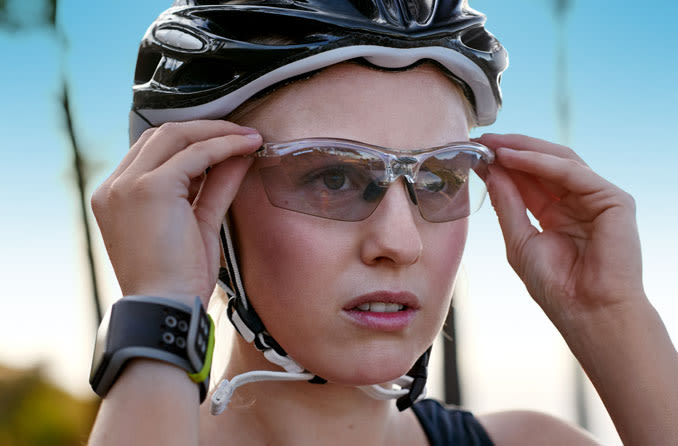
How vision relates to sports performance
If you have increased your practice and are still having difficulty progressing to the next level in your athletic performance, there may be a visual problem hindering your progress. Sports vision enhancement can dramatically boost your athletic performance in many ways, including:
- Dynamic visual acuity: viewing objects in motion
- Visual reaction time: responding to actions and events
- Depth perception: judging length, depth, and width
- Visual concentration: focusing and ignoring visual distractions
- Tracking: following objects visually
- Eye-hand coordination: reacting to visual signals when they happen
- Visual memory: awareness of your physical position, and that of others
- Focus flexibility: changing visual focus between near and far objects as needed
- Peripheral vision: side vision
Having visual difficulties with acuity, depth perception, eye-hand or eye-body coordination, focusing, tracking or peripheral awareness will translate into trouble in sports performance. Each area, however, can develop and improve with a sports vision therapy or enhancement program.
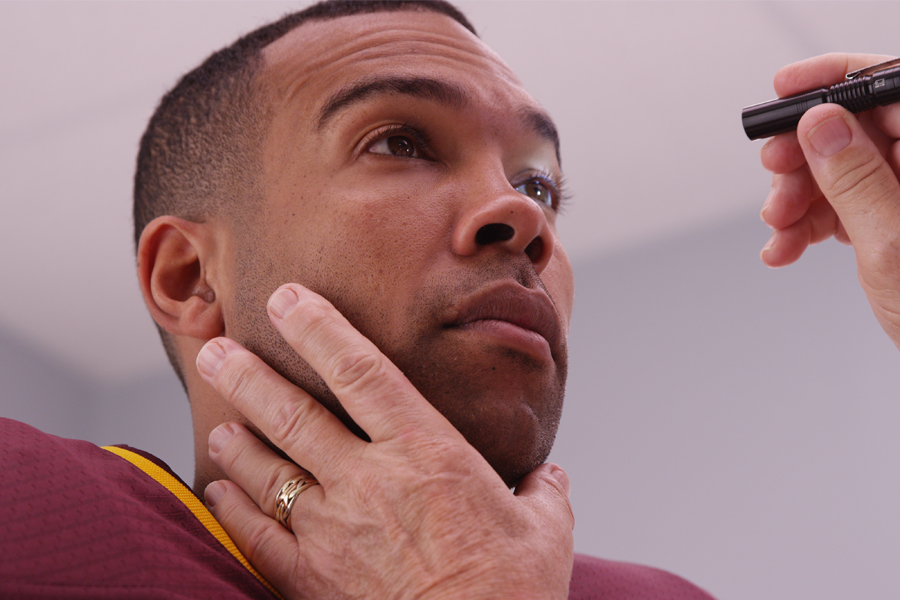
Vision therapy treatments for improved sports vision
Vision therapy always starts with a thorough evaluation of your visual acuity and the way your eyes move, including how far they move when looking to each side and how well they move together. Your depth perception and hand-eye coordination are also tested, and you’ll learn which of your eyes is dominant, which is great for individuals who participate in archery or shooting sports.
Tailored vision exercises
Vision therapy, at its core, is all about performing certain types of vision exercises. These vision exercises can be performed both at home and play ground. The eye training exercises can be performed, using conventional items, like balls, pens, and sticky notes, or special software can be installed on your computer and used for vision therapy purposes.
For example, if you need help training your eyes to better adjust to changing light conditions, the ophthalmologist may recommend a technique called sunning. This is where you sit in front of a bright window or stand outside and look at a bright sunny spot. Then, you’ll either turn your head toward a darker area or close your eyes for a few seconds. Performing this exercise several times a week can improve the reaction time of your pupils. Another great eye training exercise is one where you follow an object on a computer screen in order to improve eye teaming and tracking. Computer simulations can also improve your ability to predict a moving object’s location as it approaches you so that you can accurately interact with the object, such as hitting it with a bat, a hockey stick or catching it.
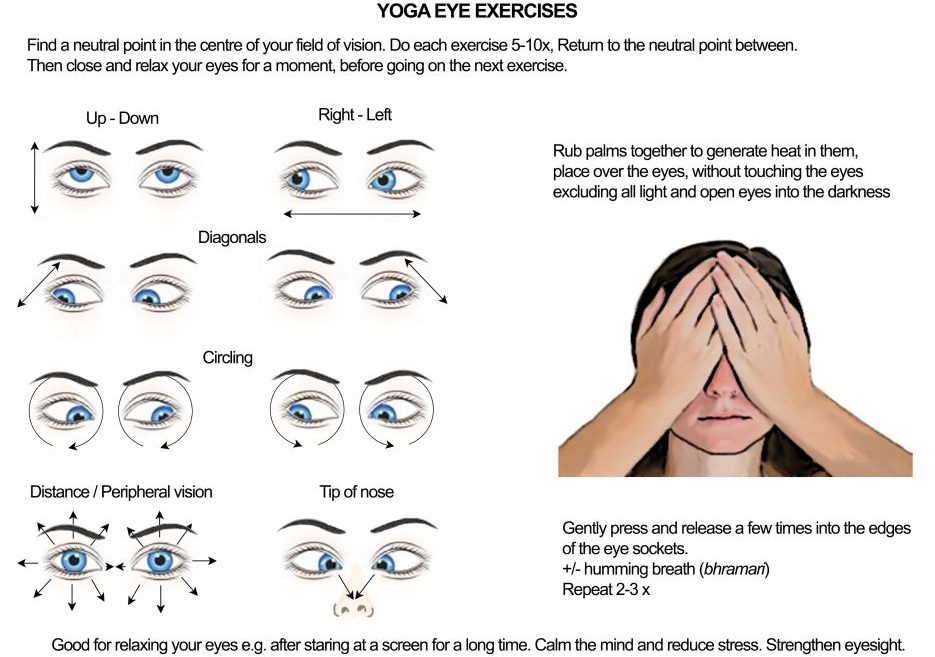
It’s important to note that all vision therapy services are completely customized to the individual so that they can improve their vision in the areas where they need it the most.
There seems to be a unique set of visual skills that are common to athletes in certain sports. In addition, visual performance measures vary between sports at the Olympic level. The ability to identify the visual needs for an athlete who wishes to participate in a given sport, and to correct any deficits an athlete may have, could lead to more success, at the elite and amateur levels.
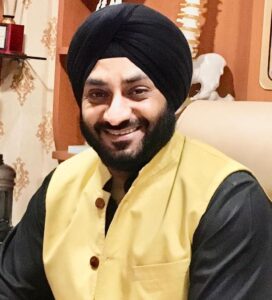
Dr Saranjeet Singh
Fitness & Sports Medicine Specialist
Lucknow (UP), INDIA

